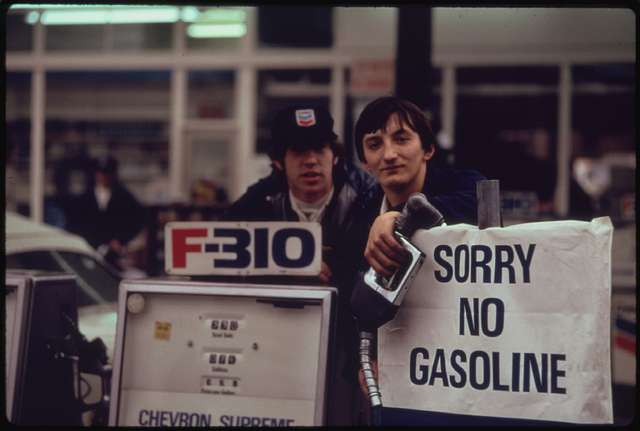Democratic presidential nominee Kamala Harris has released some details of the economic policy she hopes to implement if elected. A key feature will be measures against “price-gouging,” restricting the ability of companies to raise prices. She is especially targeting prices for food, rent, and medicine.
The problem is that regardless of ideology or good intentions, attempts by governments to control prices by decree have never worked and can never work. They always damage the economy and hurt ordinary people.
The economic value of something–that is, its price–is determined by the demand that people have for it and the supply. If there is not much of something, it will bring a higher price. If there is an abundance of something, its price will be lower. On the demand side, if many people want a product in short supply, they will bid up the price. If few people want a product, its value goes down until it can find buyers. This is how an economy allocates resources.
If the price of a product goes up, that has two effects: (1) demand goes down, since many people cannot or will not pay the higher price; and (2) supply goes up, since companies will make more of the product to increase their profits. Whereupon the decrease in demand and the rise of the supply makes the price go down.
This cycle is part of the dynamism of a free economy, resulting overall for consumers in abundant goods at a relatively low price.
Another factor in pricing, however, is inflation, which makes the price of everything go up, regardless of supply and demand. This is mainly because of an inflated money supply. Again, the abundance of something makes its value go down. An increased supply of money in the economy–due to the government spending money it doesn’t have by going in debt or just printing more money by fiat–means that the value of that money goes down. That is, it buys less, so that prices go up.
Are any of you old enough like I am to remember Nixon’s wage and price controls? Yes, this was a policy imposed by Richard Nixon, back before Ronald Reagan brought free market economics into the Republican party, which is now abandoning it again. Do you remember the empty shelves? Going to a supermarket and being unable to buy a pound of hamburger, not because it was too expensive, but because there was no hamburger to buy was traumatic for Americans used to abundance. Farmers, meat packers, and grocery stores were not allowed to sell the meat for a price high enough to make a profit on it, so they simply stopped producing and selling it.
Nixon’s price controls created shortages on a wide range of products, resulting in his soon abandoning the price freeze. But another shortage happened when Arab oil producers slapped an embargo on oil exports going to supporters of Israel. Because the United States had become so dependent on importing oil, this resulted in a sharp drop in the oil supply. The laws of economics being what they are, this also meant a spike in prices, which Nixon battled by imposing price controls.
The result, as some of you can remember, was a gasoline shortage. Service stations would run out of gas to sell. When a station had some, cars would line up for blocks, their drivers waiting to get some fuel, hoping that the pumps wouldn’t run out until they could fill up their tanks.
The embargo ended before too long, but the price controls on oil remained in place through the Carter administration, an era of “stagflation,” featuring both inflation and a stagnant economy. It was Ronald Reagan who ended price controls on oil. When that happened, American companies had the incentive to ramp up domestic production. This brought the price down, created an abundance of cheap energy, and turned the United States into an oil exporter.
The laws of economics function regardless of ideology. I have actually lived, for a few weeks, under Communism. I was part of a faculty exchange with the Estonian Institute of Humanities, back when Estonia was still part of the Soviet Union, and lived with a host family. The Communist Party controlled the economy and governed it by decree, all in opposition to free market capitalism. Because the proletariat needed bread and no one was allowed to exploit the masses by profiting off of them, the price of bread was kept low so that everyone could afford it. What that meant, though, in practice, was that there was no bread in the shops. When the cost of producing bread–not just in “capitalist” terms of money, but in terms of the resources required and the productivity of the workers–was greater than what was paid in exchange, the supply dwindled. This was true not just of bread but of nearly everything.
Sometimes shipments of one product or another–mandated by the party’s quotas for factory production–would come in, whereupon long lines of citizens would queue up at the shops and department stores to buy whatever it was. During my whole stay, whenever my host family took me on a tour of the region, our travel was paused when we saw a line in front of a shop. A family member would go over, talk to someone in line, and come back. “They’ve got light bulbs!” Whereupon someone in our group would get in line for the chance to buy light bulbs.
Fortunately, the socialist economy was complemented by a vigorous but illegal black market, run on free market principles. My host family wanted to throw a birthday party for a neighbor, so the father went to a friend of his who worked in a restaurant and came back with a package of sugar for the cake. In the restaurants, by the way, though they had menus, they were largely irrelevant. You would have to ask what they had that day. “Chicken,” the waiter might say. “Then we’ll have the chicken!” There were, however, in that era of Soviet thaw and the Estonian independence movement, some private restaurants not operated by the state where you could wine and dine to your heart’s content, for a shockingly low price if you had hard currency (that is to say, American dollars).
The interplay between supply, demand, and pricing is an economic law. It isn’t a matter of capitalism vs. socialism or Republicans vs. Democrats. The laws of the marketplace are closer to scientific laws. You won’t have one party advocating following the law of gravity and another party advocating rejecting that law so that everyone can fly. Reality doesn’t work that way.
Photo: “Gas Station Attendants Peer Over Their ‘Out of Gas’ Sign in Portland,” via Picryl, Public domain.













